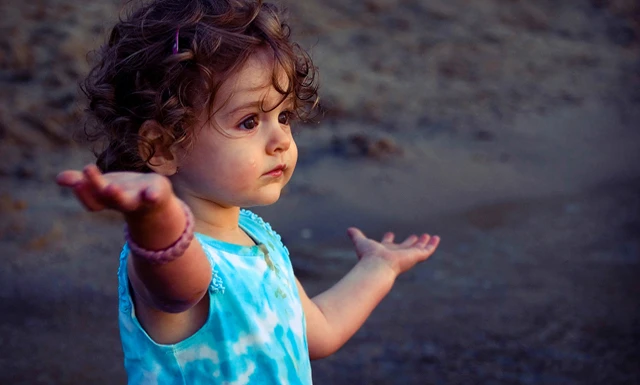Cleaving and Thirsting: The Two Step Dance of Prayer
A series on the Chassidic discourses of Samach Vav -- the cornerstone of Chabad Chassidus, by Rabbi Sholom Dov Ber Schneerson. Class 2.
1 hr
- May 17, 2011
- |
- 13 Iyyar 5771
Shmuel Braun
417 views- 10Comment
- Call-in
Listen to the class on the phone
Call +1 (845) 201-1933
When prompted, dial the ID number below.
212 MP3 MP4 Source Sheets - Copy Embed
Dedicated by Reb Yaakov and Karen Cohen
Potomac, Maryland
Class Summary:
Tags
Categories
Shmuel Braun
- May 17, 2011
- |
- 13 Iyyar 5771
- |
- 417 views
Dedicated by Reb Yaakov and Karen Cohen
Potomac, Maryland
Related Classes
Please help us continue our work
Sign up to receive latest content by Rabbi YY
Join our WhatsApp Community
Join our WhatsApp Community









Please leave your comment below!
L.A. -13 years ago
confused with maamer
Firstly thank you for these classes. they are clear, so thought out and the result on the listeners end is action which is the whole point-- so thank you!
I just have a question on class two, "Cleaving and Thirsting; the Step-Dance on Prayer" i hope the question is stated clearly...
From what i remember learning in the past, contemplations that one invests oneself in whilst davening pesukei dezimra begets the thirsting level of love (ahavas kerashpei eish) whereas once one reaches shema and shmona esrei one reaches a level of dveikus (ahava betanugim and ahava kemaim) . now, i understand that the level of reaching dveikus (deriving from contemplation on sovev kol olmin) would depend on the soul one has, but i do not understand the dveikus of pesukei dezimra (contemplating on memale kol olmin)as described in this maamer ? wouldn't most souls only achieve a level of tshuva and tzmaon if even that when contemplating memale? so how could we apply deveikus to psukei dezimra...also, it is described in Lekutei Torah parshat balak "velo raah amal beyisroel" . (If i learned this correctly), it states that contemplating on the memale kol olmin AKA shem elokim requires toil for we are revealing the havaya that is enclothed by elokim...toil and yegia seem to sound more like striving ie. tshuka and tzmaon not dveikus ( the level achieved in contemplating shem havaya) where you just experience oneness and there is no "doing" its just "being"...help? thank you so much again for the time and effort you invest into chassidus so people all over can benefit!
Reply to this comment.Flag this comment.
yy -13 years ago
Fhridreche Rebbe Maimor
Thank you. Plese give reference to a Fridreche Rebbe Maimor you have mentioned at the end of the class.
Reply to this comment.Flag this comment.
Anonymous -13 years ago
Re: Fhridreche Rebbe Maimor
It's not exactly a maamar. In the back of Samech Vov, you have explanations of the Friediker Rebbe on the FIRST maamar of Samech Vov, where the Rebbe Rashab explains the idea of Re'usa Di'Liba, and uses the same words, that
G-dliness is FELT in his soul, but not REVEALED in his soul--and there the F"R gives this mashal...
Reply to this comment.Flag this comment.
MK -13 years ago
Thank You
Rabbi Braun,
Hope all is well. Wanted to thank you for this series of shiurim that are so accessible.
I am really enjoying them, I've only listened to 1 and part of 2, but with each of them (especially #2) i really feel like it puts me into a different frame of mind entirely.
Already shared the thoughts with so many others.
Thank You
Reply to this comment.Flag this comment.
Anonymous -13 years ago
Re: Thank You
MK--
The best possible news is that you shared it with others!!!Lets get the Mayanos Chutza!!
Reply to this comment.Flag this comment.
Bracha -13 years ago
YOU ARE SO GIFTED
You have a gift from Hashem to explain the deepest concepts. It is phenomanal. You exuberate warmth and your love for the Torah is catchy.
Since you are from hungarian descent I want to say:
"nagyon erdekes kosszonom shepen oroke halash bracha"
Your mom will understand!!!!!!
Reply to this comment.Flag this comment.
Anonymous -13 years ago
Re: YOU ARE SO GIFTED
Bracha--
I had to call my grandmother actually... (:
Sivesen, renelem hogy erakes volcnekez is.
Koszonom seipen to you for the kind words!!!
Reply to this comment.Flag this comment.
Chaya -13 years ago
Thank you
I cannot thank you enough that your class is online.the way you explain chassidus is really a gift, Its clear and flowing yet deep and intellectually stimulating!
Reply to this comment.Flag this comment.
Anonymous -13 years ago
Re: Thank you
Your so so welcome...and I can't thank you enough for the compliment... (;
Reply to this comment.Flag this comment.
CM -13 years ago
Before the King
Standing before the king by davening - is that for shmone esrie or for all parts of daavening as well? (why do we only stand still by shmone esrie and by rest of davening we can walk around etc.)
Reply to this comment.Flag this comment.
Anonymous -13 years ago
Re: Before the King
Check Out Kuntress Hatefilla From Rebbe Rashab, Chapter 11. There He says 1)main preparation of Shmoneh Esrei is meditating that you're standing face to Face with the Essence Of G-d. 2) but the rest of davening you should sit or stand in one place.
Reply to this comment.Flag this comment.
Kayo, Tokyo -13 years ago
Davening
B"H
I realized that when I recite words of prayer, I am not really thinking that I am talking to HaShem, but I am speaking to myself, telling how great HaShem is. Is this OK? If not, how can I make me think and feel that I am in front of HaShem?
Reply to this comment.Flag this comment.
Anonymous -13 years ago
Re: Davening
To my friend in Tokyo,
According to Chassidic Philosophy, the MAIN part of prayer is the connecting of the mind with G-d through meditation, and the saying of the words is to draw down the G-dly Light on the body also (see Tanya Cahpter 38 for example). Therefore it's worthwhile to stop at certain points of the davening--such as between paragraphs--and think about G-d, and the fact that you're in His Presence. THEN talk to Him.
Try for instance learning by heart the first 15 lines of Tanya Chapter 41, until the words "standing before the King"--in English if that's your mother tongue--and think about them by those points of davening when you stop.
Reply to this comment.Flag this comment.
miriam -13 years ago
yay!
wonderful! thank you!
Reply to this comment.Flag this comment.
Anonymous -13 years ago
Re: Tefilloh
Shmuel, I don't know about you, but I sometimes feel my nose itch by Shmoneh Esrei. And at some rare--or not so rare...depending on my spiritual level that day--occasions, thoughts of things of this world pop into my mind. But how is this, if we're botul bi'metzius (nullified out of existence) by prayer?
A common theme of Chassidus is to become cognizant of spiritual truths even if they are not part of my immediate reality. Even though I can't actually "feel them", the awareness of them lifts me up to a higher spiritual plane. This also puts me in touch with the higher levels of my soul, that transcend my conscious self, which ARE feeling and experiencing Him. And so too here. The Rebbe is teaching us the ultimate true state of what we have achieved, and that which we do achieve by each Shmoneh Esrei, though we most probably are not directly conscious of it. (See Tanya end of Chapter 46 why Asaf in Psalms compares Jews in exile...to an animal.Exactly for this reason). In truth we HAVE become absorbed into His Light, even though I might presently only be thinking about what my wife told me to pick up at the supermarket. And so when halacha tells us that we are not to answer a Jewish king--it's because, in the Rebbe's words "zehu amitis matzavo", this IS your true state--you ARE nullified into G-d.
However, if decapitation might become your fate, then the little old me, who feels the itch and thinks of aisle 7 and the cereal boxes there, needs to jump out of ultimate truth, and deal with the still physical mundane world we currently find ourselves in...
Reply to this comment.Flag this comment.
Shmuel -13 years ago
Tefilloh
According to Likuttei Sichos that by Tefillah you are botul b'metzius and therefore you are unable to answer a king when he says hello the same should apply to a goyish king even if there is a chance that he will decapitate you??
Reply to this comment.Flag this comment.